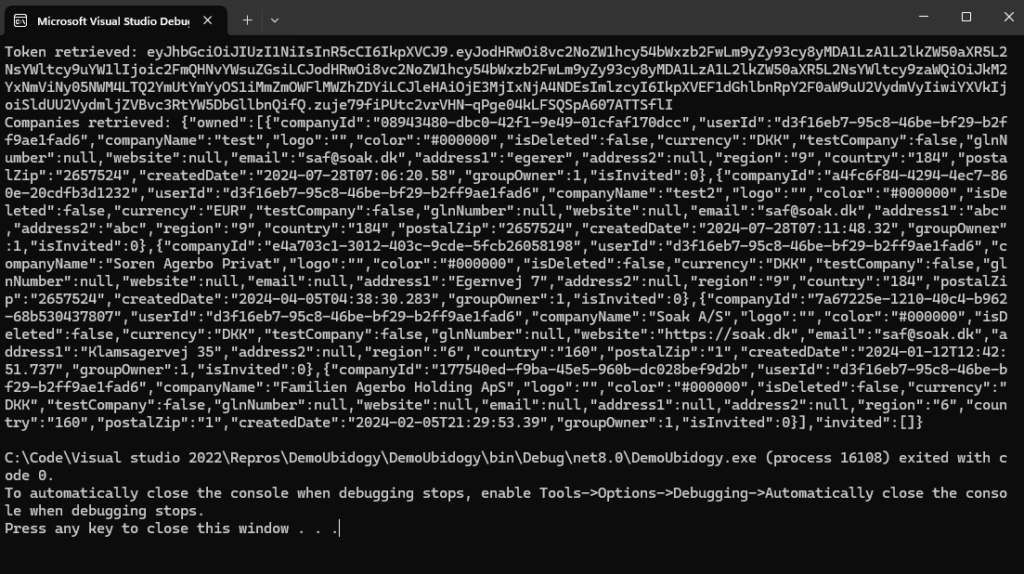3. Example C#
I will use the two methods, getToken and getCompanies to demonstrate how a C# program can be used to access UBIDOGY with API’s.

The code below will write Bearer to console application and it will return a jsonobject with company information:

using System;
using System.Net.Http;
using System.Net.Http.Headers;
using System.Text;
using System.Text.Json;
using System.Threading.Tasks;
namespace UbidogyApp
{
class Program
{
private static readonly HttpClient client = new HttpClient();
static async Task Main(string[] args)
{
string tokenUrl = "https://api.ubidogy.com/api/getToken";
string companiesUrl = "https://api.ubidogy.com/api/v1/Company/GetCompanies";
var tokenRequestBody = new
{
username = "<YOUR USERNAME>",
apiKey = "<YOUR API KEY>"
};
try
{
// Get the token
string token = await GetBearerTokenAsync(tokenUrl, tokenRequestBody);
Console.WriteLine("Token retrieved: " + token);
// Get the companies
var companies = await GetCompaniesAsync(companiesUrl, token);
Console.WriteLine("Companies retrieved: " + companies);
}
catch (Exception ex)
{
Console.WriteLine("An error occurred: " + ex.Message);
}
}
private static async Task<string> GetBearerTokenAsync(string url, object requestBody)
{
var jsonContent = new StringContent(JsonSerializer.Serialize(requestBody), Encoding.UTF8, "application/json");
var response = await client.PostAsync(url, jsonContent);
response.EnsureSuccessStatusCode();
var responseContent = await response.Content.ReadAsStringAsync();
var jsonDocument = JsonDocument.Parse(responseContent);
var token = jsonDocument.RootElement.GetProperty("token").GetString();
return token;
}
private static async Task<string> GetCompaniesAsync(string url, string token)
{
client.DefaultRequestHeaders.Authorization = new AuthenticationHeaderValue("Bearer", token);
var response = await client.GetAsync(url);
response.EnsureSuccessStatusCode();
var responseContent = await response.Content.ReadAsStringAsync();
return responseContent;
}
}
}

0 Comments